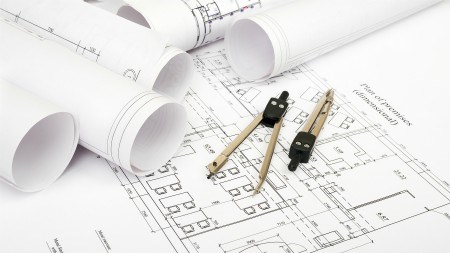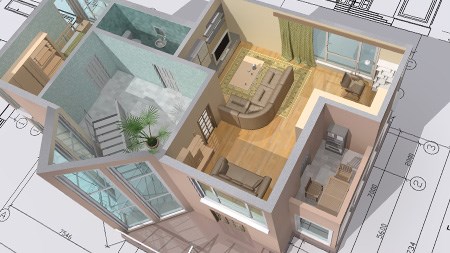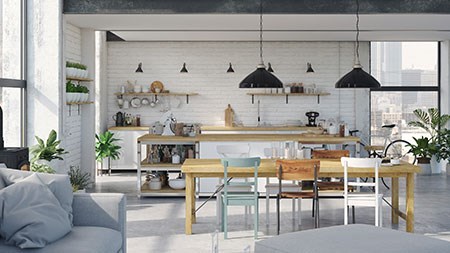What are a homeowner’s rights when a neighbour’s new building threatens to block their view?
In the past 10 years, several property owners have resorted to court action in an attempt to prevent the views from their properties being obstructed or obliterated by newer buildings. Most of these actions have been attempts to get a local authority to reverse a town-planning decision to allow the construction of a new building – and almost all have failed, because they were grounded in misconceptions about the provisions contained in Section 7 of the National Building Regulations and Building Standards Act.
There is still a widespread belief among property owners that this piece of legislation gives local authorities complete discretion to turn down a building-plan application if it believes – or can be convinced – that the new building will be of such a nature or appearance that:
- the area in which it is to be erected will probably or in fact be disfigured thereby; or
- it will probably or in fact be unsightly or objectionable; or
- it will probably or in fact derogate from the value of adjoining or neighbouring properties.
And this belief has been fostered by the recommendation of the Constitutional Court made following the Walele v City of Cape Town & Others case in 2008, which is that the municipal Building Control Officer (BCO) involved in the processing of building-plan applications should invite the input of owners of neighbouring properties before deciding whether to recommend that any plan be approved or not.
In the Walele case, the City of Cape Town said it had approved plans for a block of flats on the stand adjoining Dr Walele’s land because the properties involved were zoned ‘general residential’ and that the erection of a block of flats as high as seven storeys was allowed ‘as of right’.
The Constitutional Court, however, questioned whether the municipality had approved the plans properly. It held that it had failed to pay attention to all the factors that needed to be considered before reaching its decision and failed to comply with the mandatory procedural requirements prescribed in the Building Standards Act.
And it said clearly that in terms of the Act, a BCO was obliged to refuse to recommend approval of any building plan that would ‘derogate from the value of adjoining or neighbouring properties’ – as it ruled was apparent in Walele’s case. In laymen’s terms, what this means is that local authorities cannot simply rubber-stamp building-plan applications but must properly investigate what the new buildings will look like and what effect they are likely to have on the value of surrounding properties. In addition, while they are not obliged to invite input from the owners of neighbouring properties, they are obliged to take their opinions into account.
The right to a view explained
Unfortunately, however, the ‘right’ to a view is not a right recognised or protected by South African common law, and because of this, the courts have generally held, so far, that no value can be attributed to an existing view, and thus that the value of a property adjoining a proposed new building will not automatically be ‘derogated’ by its view being partially or even totally obscured.
Some judges have also said that those who acquire properties with an existing view should never count on having it in perpetuity, and should in fact anticipate that it will at some stage be at least partially obscured by later construction.
And it is worth noting that the two court actions in which the applicants have succeeded in getting the municipal approval for proposed buildings or building alterations that would block their views reversed have both only succeeded on a technicality. In both the Paolo v Jeeva case and the Turnbull Jackson v Hibiscus Coast Municipality case, the courts found that the approvals for the disputed building plans were invalid, not because they would diminish the value of a neighbouring property, but because the local authorities concerned did not have a Building Control Officer in their employ at the time the approvals were given, as has been required by law since 1977.
However, this does not mean that there are no views that can be protected. As Hendrik Kotze, director of property at Werksmans Attorneys, recently pointed out: ‘The development potential of a property used to depend largely on its zoning and title deed restrictions, but the position is now much more complicated.
‘In addition to planning frameworks and environmental constraints on property development, heritage laws must also be taken into account, in particular, the National Heritage Resources Act of 1999. This Act gives far-reaching powers to the heritage resources authorities in terms of development proposals, including the power to disallow the development of properties in the proximity of a heritage site or object.’ And significantly, he notes, certain heritage sites are held to enjoy the ‘right to a view’ that ordinary properties do not, which means that proposed development or construction that would obscure those views can be stopped in terms of the heritage legislation, or only allowed to proceed under certain limitations.
Meanwhile, studies have been and are being done to ascertain just what monetary value a view does add to a property, and may perhaps change the outcome the next time someone goes to court to try to protect their view. The saga will, undoubtedly, continue…




